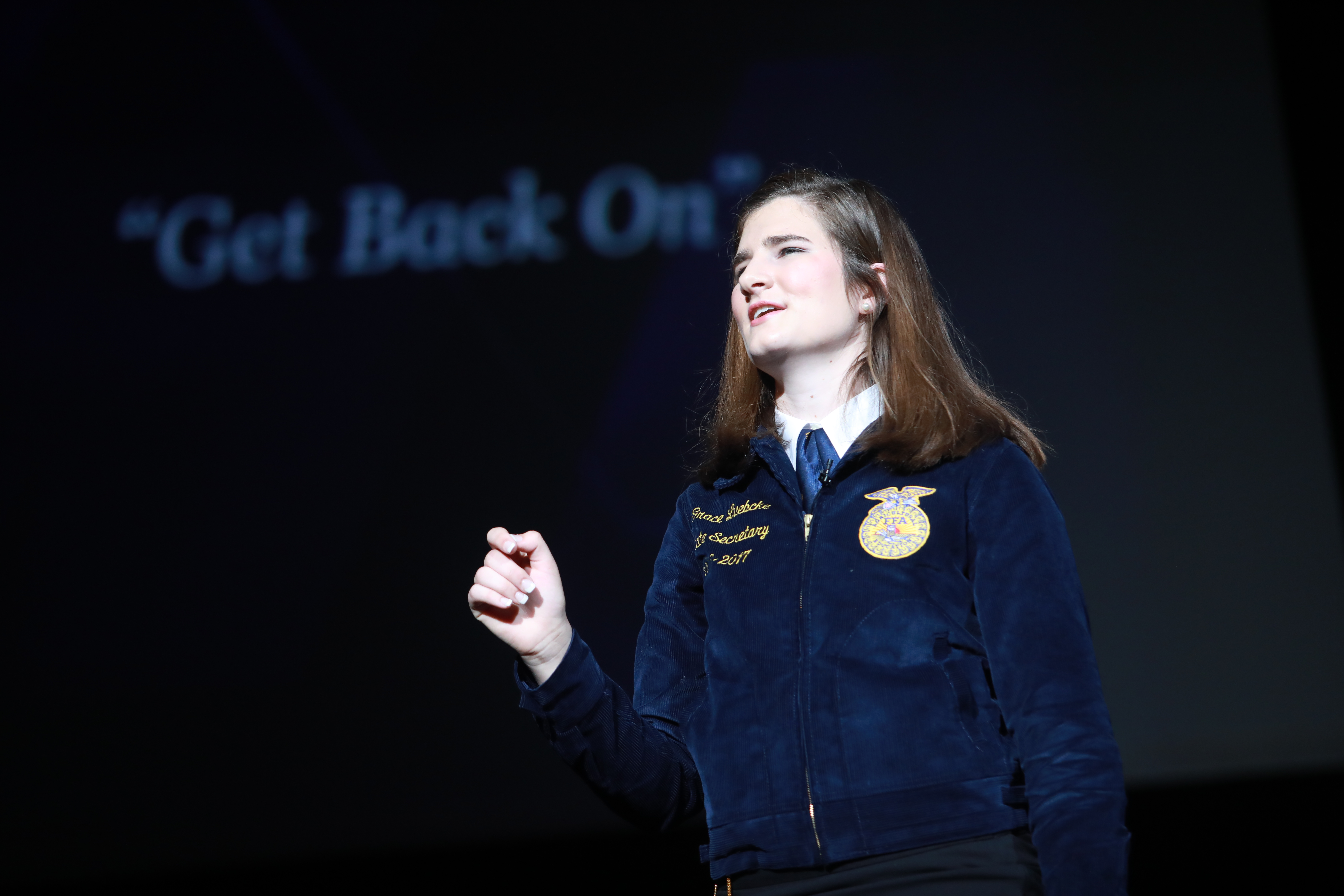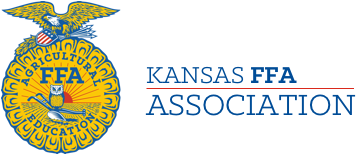Get Back On
It’s the middle of math lecture in the fifth grade.  My teacher, Mr. Schmelzle, was working on teaching long division and was calling students up to the board to solve problems. I was reasonably confident as I watched my classmates walk, one after another, up to the markerboard and finish their problem. So, as my name was called, I too, walked up to the board and began to work. 437, carry the three, add the decimal… soon enough, I came to the conclusion that I couldn’t do it. I didn’t know the answer. As I stood at that markerboard, I felt my face burn red with shame. An awkward silence had filled the classroom, and as I turned towards my teacher, one of my classmates piped up, “I thought you were supposed to be SMART!” Tears sprung to my eyes when I realized that I had failed, and I ran out of the classroom crying.
My teacher, Mr. Schmelzle, was working on teaching long division and was calling students up to the board to solve problems. I was reasonably confident as I watched my classmates walk, one after another, up to the markerboard and finish their problem. So, as my name was called, I too, walked up to the board and began to work. 437, carry the three, add the decimal… soon enough, I came to the conclusion that I couldn’t do it. I didn’t know the answer. As I stood at that markerboard, I felt my face burn red with shame. An awkward silence had filled the classroom, and as I turned towards my teacher, one of my classmates piped up, “I thought you were supposed to be SMART!” Tears sprung to my eyes when I realized that I had failed, and I ran out of the classroom crying.
We have all had great expectations set before us in one way or another. It stings when we can’t solve that problem when we are told “NO,” or we can’t overcome whatever challenge is facing us. It hurts to fail. However, there is a difference between being a failure and failing.
I have been showing horses since I was ten years old, but I have never had a horse of my own. For the last eight years, I have worked with animals belonging to my 4-H leader and “second mom,” Linda. It was the morning of the county fair last summer – one of the last shows I would be eligible to compete in – and we were prepared. I had Linda’s mare, Raina, washed, brushed and shining. We were in it to win it and I knew my hard work would pay off. After the lunch break, I was ready to have some fun in the speed events – particularly barrel racing. As a senior showman in a class of three, I was the first to run – and I was going to get that purple ribbon. I rode into the arena, and I could tell that Raina, chomping at the bit, was just as eager as I was. We raced off and rounded the first barrel, then the second – and then, the unthinkable happened. As I pulled Raina in tight around the barrel, my foot slipped in the stirrup, and I lost my balance. I went tumbling to the ground. I heard an audible gasp from the crowd in the stands, but after a quick mental assessment, I discovered that the only thing injured was my pride. So, I got up, brushed myself off, and walked over to Raina, who had stopped a little way away from me after I fell. I could feel everyone’s eyes on me, but luckily they weren’t close enough to see that the blush on my face was darker than my bay horse.
Here I was faced with a decision. I could simply lead my mare out on foot. My fall meant an automatic scratch from the competition, and I was considering hiding behind Raina’s head so that nobody could see the hot shame burning on mine. Or, I could step back up into the saddle and ride out of that arena, though I would be able to see everyone talking about me and staring at me as I exited. I felt like a total failure. I knew that all the younger members were looking up to me and that Linda and my parents expected me to do well, and I had fallen down in the dirt in front of them and a whole audience of people. I really didn’t want to face any of them. Then I recalled one of the most important lessons that Linda had told me when it comes to horse training–“Always get back on.” In that moment, I walked around my horse and put my foot in the stirrup. I hopped back into the saddle and rode out of the arena and prepared myself for the next event that day.
There are many instances where we fall down and fail–though perhaps not as literally as I did. Sometimes, this is in the form of a large, red F on the test we are handed back. Maybe it’s not getting that job or scholarship that we worked so hard to secure. Each of us is going to fail many times within our lives. (To err is human, to “argh” is pirate.) To fail is to be human, but by choosing to hide in our shame and walk out, we resign ourselves to being a failure. Yes, when we hit the ground hard, our goals may seem out-of-reach, but if we work to get back in the saddle, we have chosen to learn from this experience and prepare for the next attempt. It is only by failing that we learn how to succeed. When we muster our confidence to push through the “failing” phase, we achieve true success – something that can never be defined by trophies or the opinions of others, but a feeling we carry within ourselves.
What areas of your life have you failed to meet your goals? We may tell ourselves that our goal was too high, and make excuses to not try again. But have you made the decision to get back in the saddle? What can you do by the end of this week to get back on track, and not accept failure?
At the end of my freshman year of high school, I ran for a chapter office. To my great surprise, I was elected sentinel and spent the next year serving alongside a great team, including my brother David, our President. When elections rolled around again in the spring, I was excited to run again, but everyone was whispering about who the next chapter president would be. There were only three officers from the last year’s team running again who had the advantage of experience, and I certainly felt the pressure.
My chapter’s elections work on a ranking system, so that the highest ranked candidate has first preference for choice of office, and then the second ranked has the second choice, and so on. It was the spring of my sophomore year.I turned in my application, went through the interviews, and presented my speech before my chapter, but I knew I would not get that first ranking when I thought about qualifications of the other candidates. My friends Hadley and Jerrod were more confident, had more friends, and were better at CDEs than I was. Maybe that was better, anyway. Deep inside, I knew I could be effective in the president role, but what if I spent the year worrying I only achieved the first rank because I was “David’s little sister?” It was a week later when my advisor Mrs. Gabbert met with the candidates to announce the officer slate ranking. I was SHOCKED when she announced my name in the first rank. But when asked what my choice of office was, I stammered, “Vice-President,” when all along I had coveted the President position. My equally-deserving friend Hadley ended up accepting the presidency, and that year he did a wonderful job in that role. But throughout that day and for the rest of the year, my friends, my family, and even my advisors asked me why I didn’t choose President. I made up an excuse about wanting to be president in my senior year. Honestly, I feared – just as I thought I would – that I had only achieved the first rank because I was riding my brother’s coattails. Besides, I was too young and too introverted to lead meetings and was content to excel in the role of vice president. Or so I told myself. Everyone else believed I deserved the rank I earned, but it was my own insecurities that prevented me from fulfilling that potential.
Tim Elmore, the author of the Habitudes leadership development series, said, “When we feel inadequate, we often become inauthentic.” When we feel inadequate, we set ourselves up to be a failure. If we tell ourselves we are not going to get that job or make the team, we probably won’t. Our greatest hurdle is often our own attitude. We alone have the power to “make it or break it.”
Think about the times that we have told ourselves that we are just not good enough. We tell ourselves that we can’t make varsity because we’re just a sophomore. We tell ourselves that we’re not smart enough to get a higher score on that test. We’re not popular enough, not pretty enough, not rich enough, not strong enough… When is the last time we told ourselves that we ARE enough? That little voice inside our heads is the only one we really listen to. It’s time to change our message.
Before we face that interviewer, tackle that test, or face the next challenge, we must realize that our failures will shape our decisions in the future. Think about a recent experience where you have struggled. Has this setback made you afraid to try again to reach your goals? Take a deep breath and remember your own strengths and special talents. Tell yourself that you are better than enough – you are exceptional -and get back on with your life.
There is no avoiding it, we will fail. There will be times when it seems like all we can do is fail. Too many times, though, we become too caught up in our past failures to allow ourselves to succeed. But with each failure, we are provided with an even greater opportunity for growth. We will try again knowing that we are all the wiser because of our past experiences. We will tell ourselves that we are exceptional and face the next challenge head-on. Yes, we will fall, but we will always GET BACK ON.


